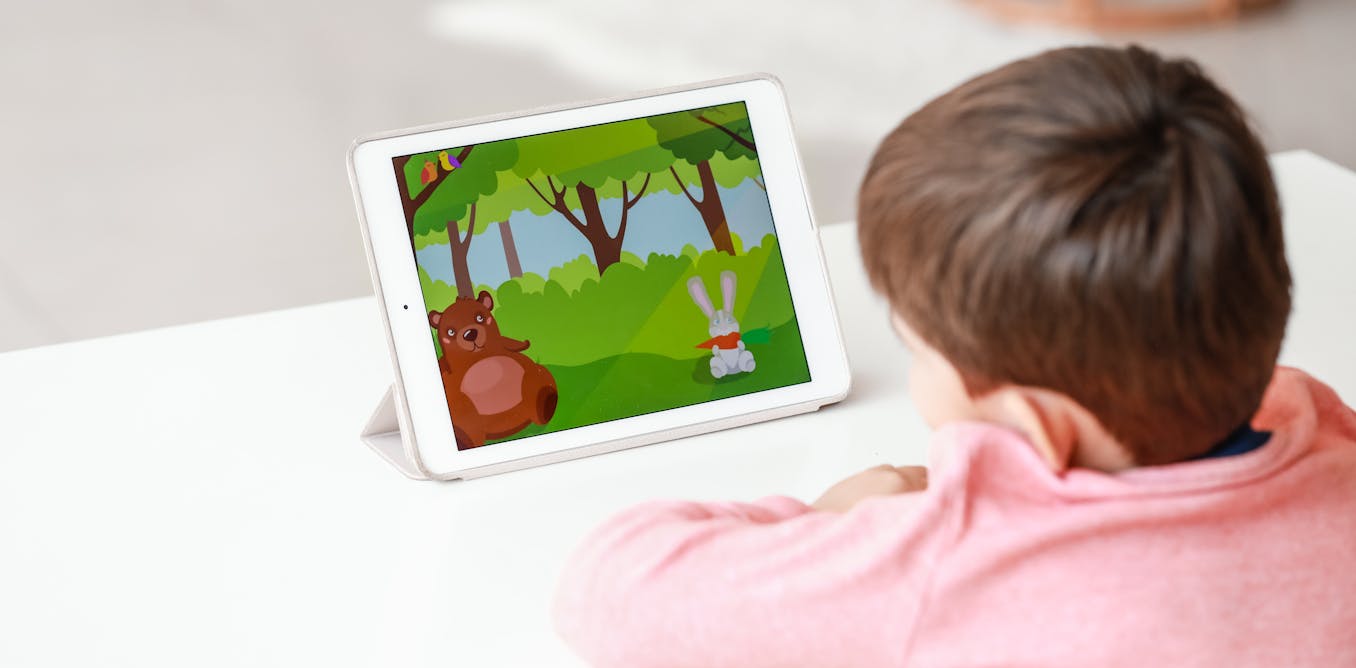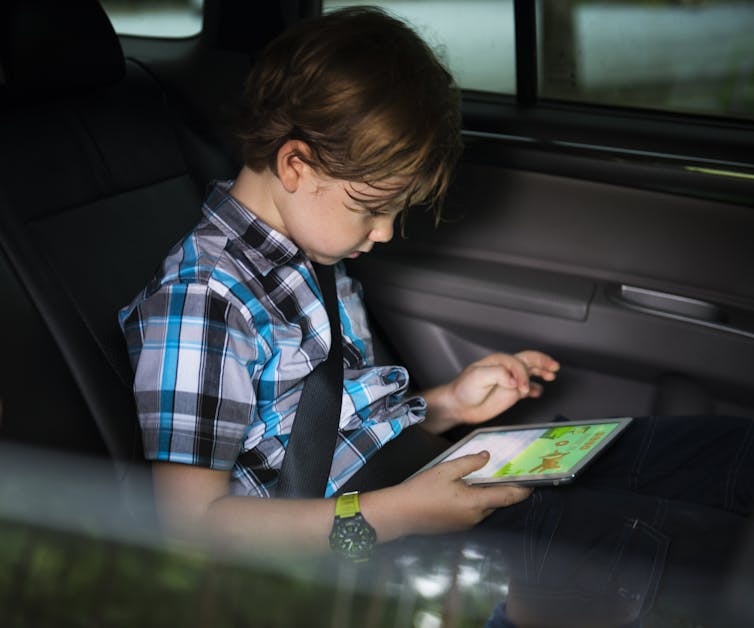Tablet use by young children is linked with more outbursts of anger and frustration

مجلة المذنب نت متابعات عالمية:
The number of children who own their own tablet has increased from seven per cent in 2013 to 44 per cent in 2020. In the United States, tablet use has become nearly universal, with 93 per cent of parents reporting that their two- to four-year-old uses a mobile device.
Tablets and mobile devices can be connected to the internet and allow users unlimited access to tailored content thanks to personalized algorithms. For this reason, these devices can be highly engaging for young children. However, they offer few opportunities for children to develop important emotion regulation skills, including the ability to manage strong emotions like anger and frustration.
The early childhood years are foundational for the development of emotion regulation skills. More challenging, less well-regulated children also tend to be exposed to more screen time by parents. For this reason, it remains important to answer the following question: does children’s tablet use contribute to poor emotional regulation, or do poorly regulated children spend more time on tablets?
We and our co-authors addressed this question in a study published in JAMA Pediatrics.
Tablet use and emotional regulation
(Shutterstock)
Over the course of three years, we longitudinally studied a sample of 315 children at the ages of 3.5, 4.5 and 5.5 years in Nova Scotia. Parents reported how much time their child spent using tablets on average every day, and reported how frequently their child expressed anger and frustration in the context of their daily routines.
Children in our sample spend on average 55 minutes (0.92 hours) per day using tablets at age 3.5, 57 minutes (0.95 hours) per day using tablets at 4.5, and 60 (one hour) per day using tablets at age 5.5.
We found that for every 73 minutes (1.22 hours) increase in tablet use at the age of 3.5 years, there was a significant increase in expressions of anger and frustration at age 4.5. Children who expressed anger and frustration more frequently at age 4.5 then increased their tablet time at age 5.5 by 17 minutes (0.28 hours).
Our study’s rigorous design also allowed us to compare each child to themselves over time. That means they served as their own baseline control, which prevents other factors such as pre-existing individual differences (such as child sex and temperament) or differences in the quality of the family environment or socio-economic status from confounding the analyses.
Kids’ tablet use

(Shutterstock)
Because of their small size, tablets can be transported to restaurants or brought along for car or bus rides to keep children busy or manage boredom and emotional outbursts. Indeed, parents report using screen media as a calming tool to help manage young children’s emotional outbursts. This strategy may be an effective short-term solution, but is likely to backfire in the long run.
In addition, very young children can operate tablets on their own, which can lead parents to use mobile devices to keep children busy. As such, child tablet use is likely to offer immediate gratification to children while remaining a solitary activity.
For these reasons, three-year-olds who spend more hours using tablets may forfeit opportunities to engage in activities — such as interactions with caregivers or free play with other children — that are essential for rehearsing and eventually mastering self-regulation. By the age of four, more frequent expression of anger also contributed to increases in tablet use, suggesting that early childhood tablet use could contribute to a vicious cycle over time.

(Shutterstock)
Our study is not without limitations. First, our study was conducted during the pandemic with a convenience sample of 315 children with low levels of socioeconomic risk. Replications on more diverse and vulnerable samples post-pandemic are needed to confirm these results.
Future studies could examine the roles of screen media content and context of use on children. For instance, using tablets for e-book reading versus using a tablet to watch videos on YouTube may have different effects on children. Furthermore, the co-use of tablets with caregivers may offer more opportunities for social interactions, which may contribute to child learning outcomes.
Takeaways for parents and caregivers
Our results indicate that parents should closely monitor tablet use in the early preschool years. Parents should also avoid using tablets as a digital calming tool, especially with children who may be having trouble regulating their emotions and behaviour.
Finally, to improve emotional regulation skills, parents can ensure that children have sufficient opportunities to engage in activities that promote the development of emotion.
نشكركم على قراءة المنشور عبر مجلة المذنب نت, المتخصصة في التداول والعملات الرقمية والمشفرة














